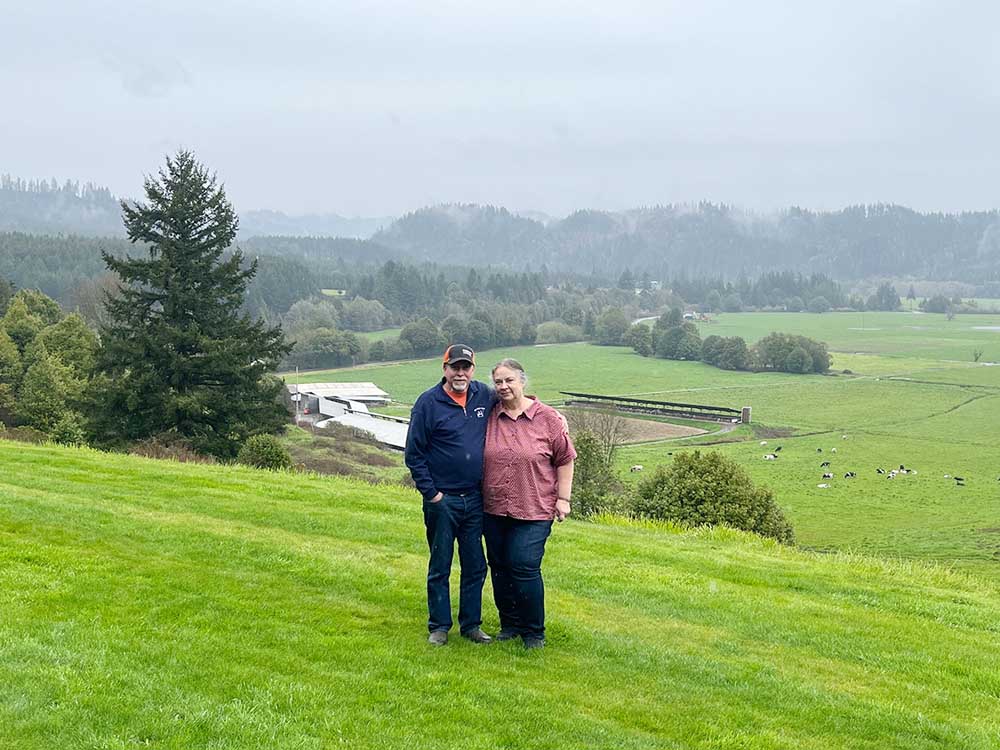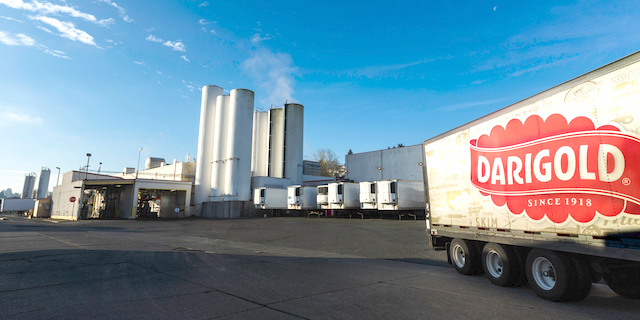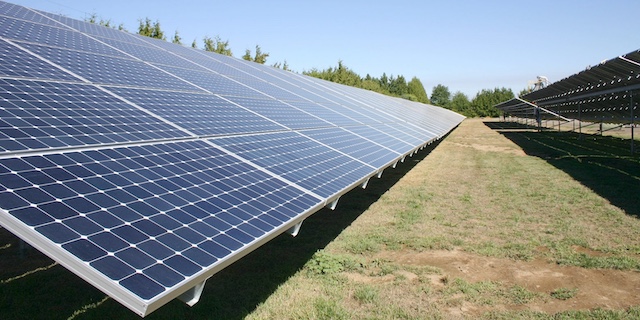Lee Valley Dairy: A family affair
Published 3:15 am Thursday, June 1, 2023

- Bob and Nanette Ross are owners of Lee Valley Dairy, east of Myrtle Point, Ore.
MYRTLE POINT, Ore. — In retrospect, Lee Valley Dairy was inevitable.
Bob Ross grew up on his father’s dairy near Coos Bay. Bob’s future wife, Nanette Greif, claims she was a Coos Bay “city girl” but had dairying in her blood as well. Bob and Nanette’s grandparents had dairies across the road from each other.
From the time he was a toddler, Bob helped his father, Gordon Ross, work the dairy. His first memory was of filling cans with grain to feed the cows.
“But by high school, I was saying ‘no way’ to dairies,” Bob said. “I saw it was a daily financial struggle. I liked agriculture, but I wanted it to be profitable.”
After graduation from Marshfield High School in 1977, he headed for Minnesota, where he worked on a small farm until he got homesick.
Back at home, he worked in construction and excavation for a few years, helping his dad on the dairy while taking classes at Southwestern Oregon Community College.
Two things happened at SWOCC that called him back to dairying: He began to form a plan for creating his own financially viable dairy, and he met Nanette, who was studying bookkeeping.
By 1982, Bob and his cousin established 90 head of Holsteins at Lee Valley, a picturesque vale on the North Fork Coquille River, east of Myrtle Point and about 30 miles from where he grew up.
After “ten months, fifteen days and three and a half hours,” Bob laughed, the partnership dissolved.
For years, Nanette, Bob and their growing family lived in a trailer above the property. Until 1999, they shipped their milk to a plant owned by Safeway.
“I didn’t inherit it,” said the son of a dairyman who is often accused of being handed his father’s business. In fact, Bob points out, Lee Valley Dairy started out larger than his father’s and now tops 300 head of Holsteins.
Since 1999, Lee Valley Dairy — and six of the seven dairies in Coos County — have been organic and sell to Organic Valley, a cooperative of 1,600 farmers across the U.S.
Nanette smiles and suggests Bob inherited one thing from his father, a former Coos County commissioner whose love of local history is pressed to the pages of several small books.
“They both love to tell stories,” Nanette said.
Lee Valley had entered a bustling market. According to reports, there were more than 90 dairies in Coos County in 1982.
“Back then, my cousins and friends all had dairies. Sunday after church, we talked dairy, or helped move cows,” Bob said.
Over the decades, marketing problems and an increasing number of rules and paperwork picked off smaller dairies, but Lee Valley survived.
“A small farm was not feasible. I saw that growing up,” Bob added. “If a person was to have a life, and an income, you had to have a farm big enough to hire help.”
The four Ross children and their spouses take varying roles in the dairy business but mostly work at jobs off the farm.
Most directly involved are their son, Nathan, and his wife, Jakelynn. The young couple with two children run the hay ranch in Hampton near Burns, an 1,800-acre spread that supplies alfalfa and barley to Lee Valley Dairy. On dry days, which have been rare so far this year, the Ross Holsteins graze on abundant grass grown on the dairy’s 600 Coos County acres.
“We can grow grass,” Bob said, “But hay and grain has to be trucked here.”
As a result, fuel costs are a big expense for the dairy.
Daughter Meghan and her husband, Brady Hampton, son Evan and his wife, Kelsey, and daughter Bethany and her husband, Michael Mason, all live nearby and help when needed.
Four grandchildren, with two on the way, suggest the Ross clan is still growing. After 20 years in a trailer, in 2002 Bob and Nanette finally built their own beautiful house overlooking the valley.
Bob walks through his barns and milking parlors as he talks about his new hay steamer, drip irrigation, GPS-steered tractor, manure lagoons and underground lines, and riparian zones established to protect the river.
Wildlife flock to the grass he grows in the lush valley. “I’m farming 340 cows and 120 elk,” Bob shrugs.
Despite his intention to do something other than dairying, Bob admits his dad did have an influence on his decision to run a dairy.
“I watched all the things he (Dad) did wrong and did the opposite. Now, Nathan’s telling me what I’m doing wrong.”






